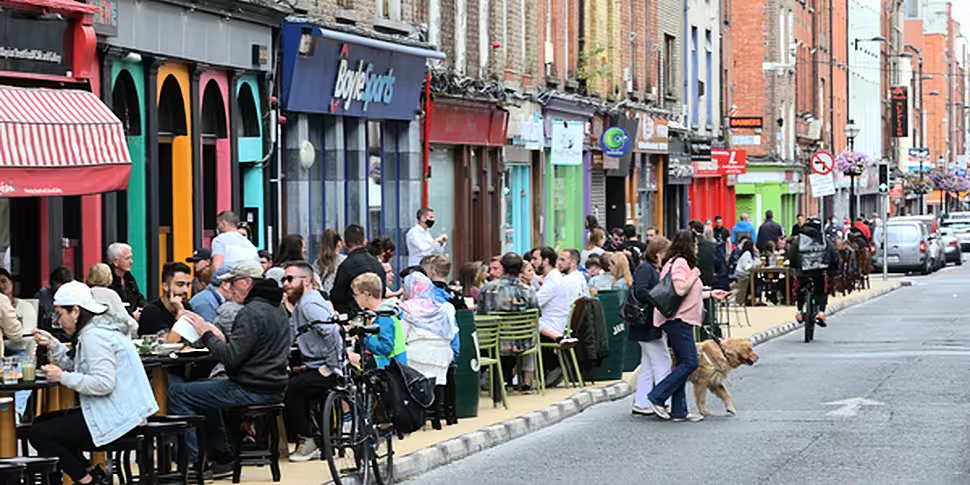Outdoor dining is making navigation extremely difficult for the visually impaired, according to the Irish Guide Dogs for the Blind.
Since outdoor hospitality resumed two weeks ago, pubs and restaurants around the country have put out extra furniture and partitions.
However, Lean Kennedy, National Advocacy and Policy Officer for the Irish Guide Dogs for the Blind, says this has forced visually impaired people out onto the road.
Speaking to Stephen Murphy on Newstalk Breakfast Weekends, she said the public need to be more considerate of the visually impaired.
"With the outdoor dining, we have increased street furniture on the pavements and it's literally forcing people who are blind and visually impaired out onto the roadway which is really disorientating for them," Ms Kennedy said.
"It's very hard for them to find their way and it's also putting them on to the road among cyclists and motorists.
"It feels very unsafe and disconcerting for them, it can be confidence knocking and it's making it harder for them to get out and about in cities."
Blind and visually impaired people would have a defined route set out when navigating through towns and cities, she added.
They are now having to learn a different way of getting through the streets.
"Also they have to walk around people and other diners and people who are blind or visually impaired, we can't ensure that we're keeping the specific distance from other people," she said.
"We need people to understand they should take the initiative and give blind and visually impaired people the space they need to get around.
"Whether blind and visually impaired people are using a cane or a guide dog, it's getting very difficult to get through the streets safely without bumping into street furniture or other people."
Call for local authorities to provide safe route
Ms Kennedy said a safe route is needed for blind and visually impaired people, similar to a cycle lane, that is marked by a kerb.
She explained: "Ideally, it would be 60mm to 120mm and it's the best way for blind and visually impaired people to get around with a cane or a guide dog and know they're on the pavement and they're not going to veer out onto the cycle lane or the roadway.
"It just ensures they have a clear route that is unobstructed by and it's a need that we're calling on local authorities to implement in terms of their street pedestrianisation.
She added that while local authorities are working to facilitate outdoor hospitality this summer, many of the streets are not wide enough to facilitate furniture and pedestrians.
The Irish Guide Dogs for the Blind has received calls from service users who are getting into dangerous situations and difficulty with people using e-scooters, cyclists and motorists.
"The cities are becoming more unwelcoming for them [blind and visually impaired people] now and we do need the local authorities to understand the difficulties that they're having and ensure their needs are facilitated through the safe space," Ms Kennedy said.









